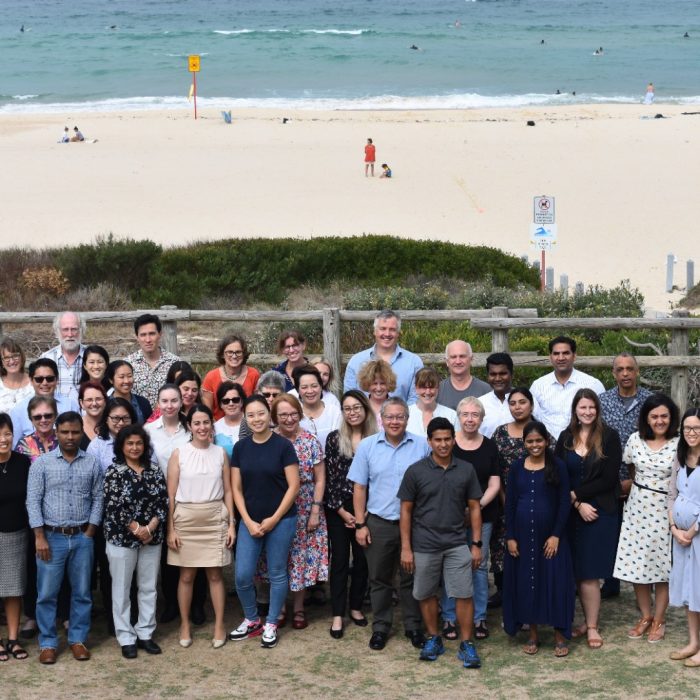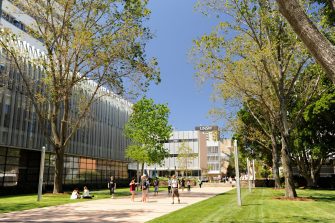About us

We’re dedicated to forming partnerships with the ophthalmic industry and across the healthcare sector. Our school is committed to translational research which leads to practical application and significant improvements in ocular health. The best in practicum experience, the UNSW Optometry Clinic supports optometry education, providing on-campus clinical training for students. The school runs a Vision Education Centre offering eye screening to primary school children. Since 1990, the Centre has screened more than 18,000 children.
Our three-year Bachelor of Vision Science undergraduate program can be taken as a standalone degree with the option of an honours year. Alternatively, it can lead to a two-year Master of Clinical Optometry at the postgraduate level. The Bachelor of Vision Science with the Master of Clinical Optometry allows graduates to practice as an optometrist in Australia, New Zealand and many Asian countries.
With world-class research facilities and staff with international reputations, the school offers the most comprehensive vision science postgraduate degrees in Australia, including higher degree research – PhD, MSc and a Doctorate in Clinical Research in Optometry. In addition, coursework degrees such as Master of Optometry, and Graduate Certificates in Ocular Therapeutics, Optometry and Myopia Management as well as a Graduate Diploma in Orientation and Mobility are offered.
Our vision
The undergraduate produces graduates with superior clinical skills and a thorough understanding of the vision science that underpins clinical practice. A BVisSci/MClinOptom (UNSW) leads directly to registration in Australia, New Zealand and Malaysia. It's also recognised in many other countries around the world.
Optometry was a founding discipline of UNSW. The school takes pride in its achievements in teaching and research over the last 50 years. We look forward to expanding and optimising our activities. Our aim is to continue providing outstanding vision care and offering the knowledge infrastructure to support our changing profession.
Location
The school is located on the Kensington campus. It incorporates the UNSW Optometry Clinic and the Optics and Radiometry Laboratory.
The Optics and Radiometry Laboratory provides a test, calibration, research and development service in matters related to light and colour.
The UNSW Optometry Clinic uses the latest diagnostic equipment to provide the best in patient eye health management. The clinic is open to the public, so students see patients from different ages and educational and cultural backgrounds. The clinic operates several internal clinics. Along with external placements, students experience many areas of optometric and eye care, such as paediatrics and myopia progression control.
The Rupert Myers Building is also home to several other eyecare, research and education organisations. These include the Centre for Eye Health, Brien Holden Vision Institute and the Vision Cooperative Research Centre. The latter is an international research centre devoted to addressing the issues of visual defects and preventable blindness.
The school’s multidisciplinary approach to research is one of its key strengths. Research options cover a range of topics and disciplines, including basic, applied and clinical research in the science of vision.
Address
School of Optometry & Vision Science
UNSW, Sydney
Gate 14, Rupert Myers Building, North Wing
Barker Street
NSW
2052


.cropimg.width=335.crop=basic.jpg)